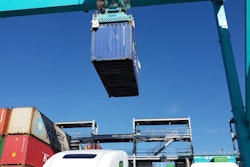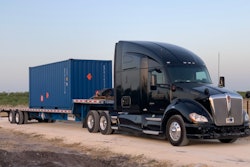The hottest story in business news right now is the global supply chain crisis, and amid all the finger-pointing and armchair quarterbacking going on in mainstream media, politics, and the tech world, a clearer picture emerges of just who or what might be to blame for ballooning waits and congestion issues.
Unfortunately, laying that blame requires each American to take some responsibility for the cheap prices and next-day delivery we’ve all become so reliant on. The blames lies with the corporate world broadly, according to Ryan Petersen, CEO of Flexport, a tech platform for global logistics.
Petersen, in a series of tweets closely watched and reported on by the likes of Bloomberg and tech leaders, spent the last few weeks touring the ports and surveying workers to pinpoint just where the breakdown happens.
In Petersen’s telling, a corporate obsession with return on equity killed the supply chain. The obsession led to "just-in-time" inventory practices all around the business world, meant to cut down on overhead by leaning hard on a global supply chain strong business relationships made quick and efficient.
Ideally, in times of supply chain strain, large companies would rely on their stockpiles of inventory to meet customer demand and stave off shortages. Shortages, if and when they arrive, in turn boost demand even further. Given that every large ecommerce operation, like those of Amazon and Walmart, do their best to keep minimal inventory on hand, that shock absorber is gone.
"The global logistics companies have no excess capacity, there are no reserves of chassis, no extra shipping containers, no extra yard space, no extra warehouse capacity," Petersen wrote. "The brands have no extra inventory. Manufacturers have no extra components or raw materials on hand. Almost nobody has any employee loyalty because they haven't been willing to take care of their people through thick and thin of business, and thus they can't staff up quickly to meet surging demand. All businesses now complain about employee loyalty, but have we earned it?"
[Related: Where are the empty shelves? Keep those rate increases coming, shippers]










